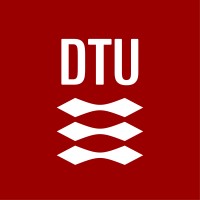Are you passionate about advancing fuel cell technologies and contributing to innovative solutions for energy resilience under harsh conditions? Do you thrive in international collaborative settings and wish to play a key role in an EU-funded project with researchers from multiple countries? If so, this PhD position could be a good opportunity for you.
This project focuses on developing and demonstrating a modular, containerized fuel cell system capable of dual-fuel operation with either hydrogen or methanol. The system aims to provide electrical power to critical infrastructure during emergencies and is based on high-temperature PEM (HT-PEM) technology. The HT-PEM stacks operate at approximately 160 °C, offering simplified designs and operational advantages, including improved water management, facile heat rejection, and the ability to use reformates directly.
At DTU Energy, we have been carrying out R&D in sustainable energy conversion technologies and especially fuel cells and electrolysis cells for many years, and we are among the world’s leaders in research and development in this area. We have excellent facilities and competencies for fabrication, modeling, testing, and characterization of such devices.
Responsibilities and qualifications
The focus of this position is to help advance the development of a reliable and efficient dual-fuel HT-PEMFC using multi-physics, multi-scale modelling of the HT-PEMFC cells and stacks. The project emphasizes performance, flexibility, and durability under harsh operating conditions, ensuring its reliability for providing electrical power.
Your primary tasks will be to:
- Develop a detailed 3D multiphysics model of the HT-PEMFC stack to analyze and optimize thermal management.
- Design a heat recovery system, tailored to the high-temperature PEMFC to produce warm water for practical applications (e.g., heating and washing) in disaster areas.
- Investigate the thermal dynamics and overall performance of the HT-PEMFC stack and system under variable load and transient conditions. Develop a transient model to assess behavior during power demand fluctuations and optimize operational strategies.
- Study the degradation mechanisms of the HT-PEMFC cell and stack using experimental data and advanced modeling techniques. Propose and implement improved operation modes to minimize degradation effects and enhance performance.
As part of the PhD education, you will follow courses and assist in teaching activities, and:
- You are expected to spend a period at a foreign research institution
- You will disseminate your work in international peer-reviewed journals and at scientific conferences.
You must have a two-year master's degree (120 ECTS points) or a similar degree with an academic level equivalent to a two-year master's degree. Ideally, you have a degree in mechanical, chemical, or energy engineering or similar and experience in some of the following areas:
- Experience in Multiphysics and CFD modeling involving fluid dynamics, and electrochemical processes, preferably HTPEM fuel cells.
- Proficiency in relevant computational tools, such as COMSOL Multiphysics.
- Familiarity with degradation mechanisms and the transient behavior of PEM fuel cell stacks is advantageous.
- A high motivation to advance clean energy technologies.
- Excellent teamwork and collaboration skills to perform in an international consortium.
- Strong communication skills in both written and spoken English.
If you don’t meet all the qualifications listed above but are passionate about the research topic and believe you can contribute to the project, we encourage you to apply!
This position offers the opportunity to contribute to cutting-edge research in energy resilience and to collaborate with leading European institutions on a high-impact project.
Approval and Enrolment
The scholarship for the PhD degree is subject to academic approval, and the candidate will be enrolled in one of the general degree programmes at DTU. For information about our enrolment requirements and the general planning of the PhD study programme, please see DTU's rules for the PhD education.
We offer
DTU is a leading technical university globally recognized for the excellence of its research, education, innovation and scientific advice. We offer a rewarding and challenging job in an international environment. We strive for academic excellence in an environment characterized by collegial respect and academic freedom tempered by responsibility.
Salary and appointment terms
The appointment will be based on the collective agreement with the Danish Confederation of Professional Associations. The allowance will be agreed upon with the relevant union.
The period of employment is 3 years. The starting date is 1 October 2025 (or according to mutual agreement). The position is a full-time position.
You can read more about career paths at DTU here.
Further information
Further information may be obtained from Assistant Professor Arash Nemati ([email protected]) or Professor Henrik Lund Frandsen ([email protected]).
You can read more about the Department of Energy Conversion and Storage at www.energy.dtu.dk/english.
If you are applying from abroad, you may find useful information on working in Denmark and at DTU at DTU – Moving to Denmark. Furthermore, you have the option of joining our monthly free seminar “PhD relocation to Denmark and startup “Zoom” seminar” for all questions regarding the practical matters of moving to Denmark and working as a PhD at DTU.
Application procedure
Your complete online application must be submitted no later than 17 August 2025 (23:59 Danish time). Applications must be submitted as one PDF file containing all materials to be given consideration. To apply, please open the link "Apply now", fill out the online application form, and attach all your materials in English in one PDF file. The file must include:
- A letter motivating the application (cover letter)
- Curriculum vitae
- Grade transcripts and BSc/MSc diploma (in English) including official description of grading scale
You may apply prior to obtaining your master's degree but cannot begin before having received it.
Applications received after the deadline will not be considered.
All interested candidates irrespective of age, gender, disability, race, religion or ethnic background are encouraged to apply. As DTU works with research in critical technology, which is subject to special rules for security and export control, open-source background checks may be conducted on qualified candidates for the position.
The Department of Energy Conversion and Storage (DTU Energy) focuses on research and development of functional materials, components, and systems for sustainable energy technologies. The technologies include fuel cells, electrolysis, power-to-x, batteries, and carbon capture. The research is based on strong competences on electrochemistry, atomic scale and multi-physics modelling, autonomous materials discovery, materials processing, and structural analyses. We also focus on educating engineering students at all levels, ranging from BSc, MSc, PhD to lifelong learning students. We have about 300 dedicated employees. Read more about us at www.energy.dtu.dk.
Technology for people
DTU develops technology for people. With our international elite research and study programmes, we are helping to create a better world and to solve the global challenges formulated in the UN’s 17 Sustainable Development Goals. Hans Christian Ørsted founded DTU in 1829 with a clear mission to develop and create value using science and engineering to benefit society. That mission lives on today. DTU has 13,500 students and 6,000 employees. We work in an international atmosphere and have an inclusive, evolving, and informal working environment. DTU has campuses in all parts of Denmark and in Greenland, and we collaborate with the best universities around the world.




